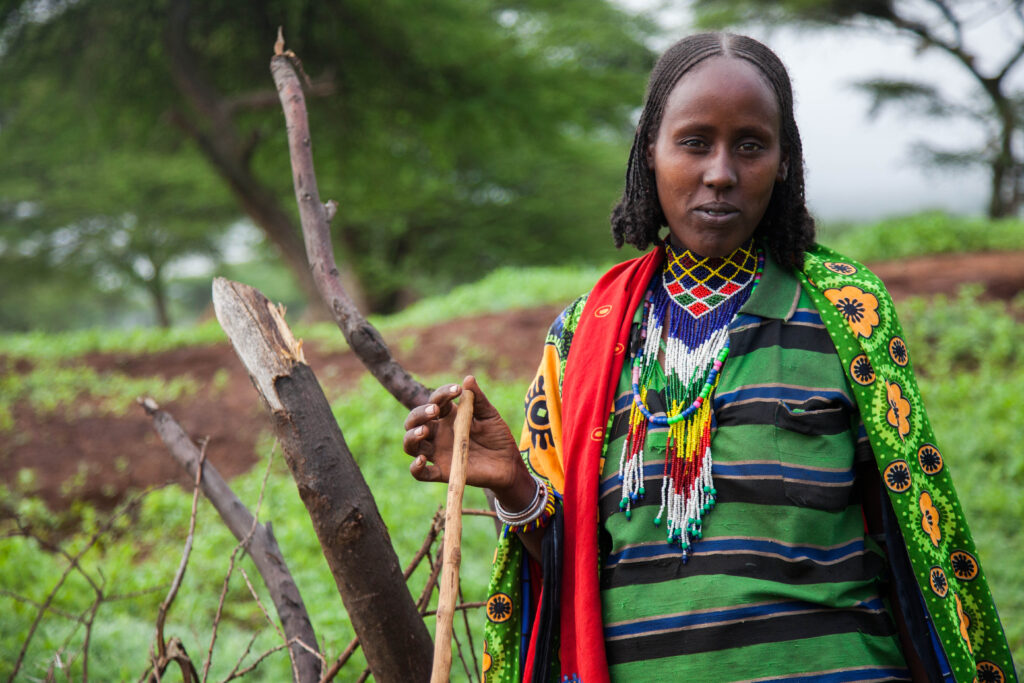

 A woman from the Oromo community in Borana, Ethiopia. Photo by ILRI / Zerihun Sewunet, via Flickr (CC BY-NC-ND 2.0)
A woman from the Oromo community in Borana, Ethiopia. Photo by ILRI / Zerihun Sewunet, via Flickr (CC BY-NC-ND 2.0)
As we near the end of this series of blogs dedicated to the Fourth World Journal Special Issue: Nations International Criminal Tribunal (NICT), we highlight “The Indigenous Oromo Nation: Victims of Natural Resource Theft under Abyssinian Imperialism and Colonialism in the Creation of Modern Ethiopia,” by Muhammad Al-Hashimi.
This contribution challenges the myth of an uncolonized Ethiopia by tracing the 19th-century imperial conquest of Oromo lands and exposing the historical and ongoing exploitation of the Gujii Oromo’s natural resources—most notably through gold mining at Lega Dembi. Al-Hashimi argues that these extractions, carried out without Free, Prior, and Informed Consent (FPIC), represent clear violations of Indigenous rights and calls for the Oromo Nation’s participation in international mechanisms like the NICT as a vital step toward accountability, recognition, and redress.
Hear from Al-Hashimi directly on his contribution to the journal.
By Muhammad Al-Hashimi, Ph.D.
This paper examines the exploitation of the Indigenous Oromo people’s natural resources without Free, Prior, and Informed Consent (FPIC), beginning with the historical subjection and oppression of the Oromo by imperial and colonial forces. It challenges the prevailing narrative of Ethiopia’s 3,000-year independence by showing that its current geopolitical boundaries—formed no more than 175 years ago—resulted from African imperial expansion. Focusing on the Lega Dembi gold mines in southern Oromia, the analysis demonstrates how successive Ethiopian regimes have violated Gujii Oromo human and Indigenous rights through forced gold and silver extraction, precipitating severe environmental harm. Finally, it argues for the Oromo Nation’s accession to the International Covenant on the Rights of Indigenous Nations (ICRIN) and recognition by the Nations Indigenous Court Tribunal (NICT), thereby securing a legal forum to address ongoing FPIC infringements and seek redress for resource-extraction abuses.

Muhammad Al-Hashimi, Ph.D., is a Scholar of the Original Nation Approaches to Inter-National Law (ONAIL), a unique perspective on the international legal system. Additionally, Dr. Al-Hashimi is an Adjunct Professor of Islamic Studies at Euclid University in Washington, DC, and Banjul, The Gambia, West Africa.
Watch all of our contributors’ interviews.
Get free access to this article and the latest issue of Fourth World Journal.
The library is dedicated to the memory of Secwepemc Chief George Manuel (1921-1989), to the nations of the Fourth World and to the elders and generations to come.
access here